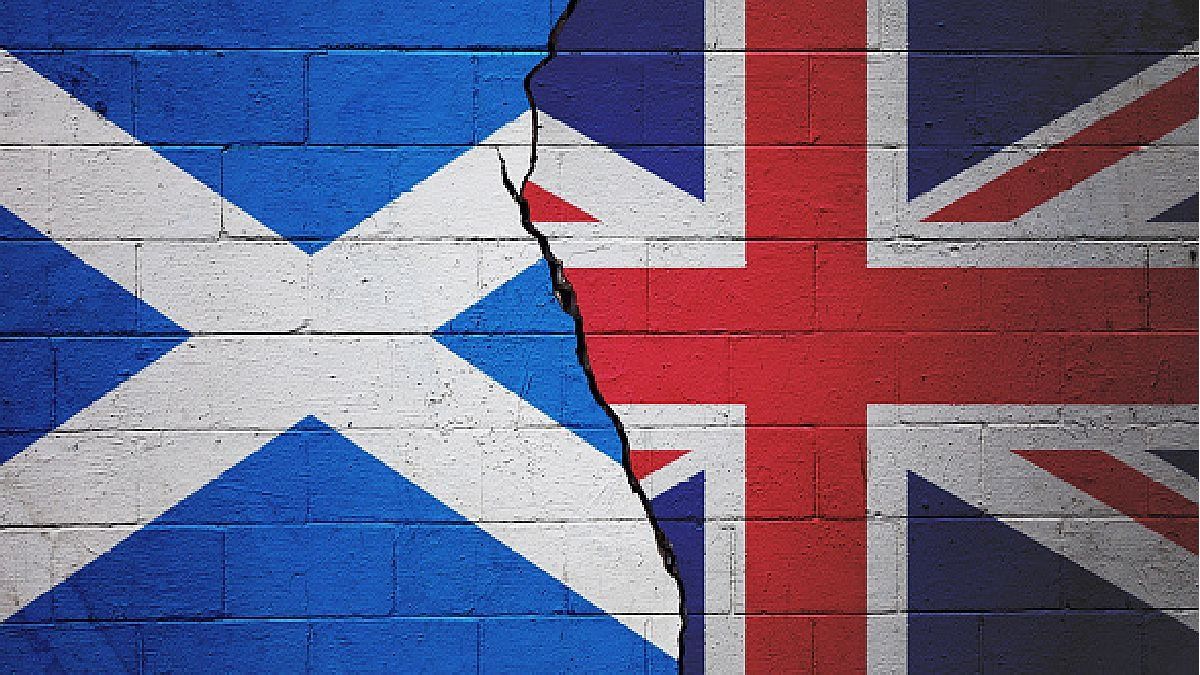History indicates that Scotland and England have been politically united since 1707. While Scotland has had its own parliament and government since 1999 – allowing it to make its own policies on public health or education – the UK government in London controls key issues, such as defense or fiscal policy. I mean, determines the two main edges that any jurisdiction wishes to hold: economic and coercive power.
It is clear that the idea of a great United Kingdom, with the prospect of putting Great Britain back in its place, is in conflict with particular interests, typical of the need of a people to find their own destiny. Cultures with different nuances, ideological perceptions with counterpoints, but mainly, with clear differences in the management and priorities in the distribution of economic resources.
In this sense, Brexit was a pivotal moment of differentiation: while in the British media the predominant issues of the campaign in favor of leaving the European Union were immigration and the health system, for the Scots they were more important fishing quotas or public transport. Secondlythe younger generations, who have grown up with intra-community freedoms, have learned to appreciate them and do not want to lose them. Less ideology and more pragmatism, one could say. And if we don’t think about the massive British support for the Ukrainians; a love that is slowly ‘turning off’ due to the impossibility of heating itself as the European winter arrives.
To this day, for the SNP the British Government has implemented austerity policies that have driven hundreds of thousands of Scots into poverty. “If we only represent 8% of the Kingdom’s economy, then let them allow us full control of our oil fields in the North Sea (around 90% of British crude is extracted from wells located in the areas claimed as their own by secessionists in Scotland), the world famous single malt whiskey, the textile industry, jet engines, and the various banking services we run.”, they complain from Glasgow. It is that Scotland has exclusive industries of great importance, but for the British parliament their relevance is less than what it would have in an independent Scotland.
In this aspect, in Glasgow they are not so wrong: in the Westminster Parliament, Scottish representatives hold only 9% of House of Commons seats. Despite the fact that this is consistent with their demographic status within the Kingdom, they affirm that this situation makes them pay more taxes per person than the rest of the country, that their opposition to the privatization of public services is useless, that it does not allow them to create a oil fund such as Norway’s -with which social spending would be indirectly supported-, or even that they have to resign themselves to the existence in their territory of nuclear weapons, such as submarines armed with Trident missiles found in the naval base of Clyde, in the town of Argyl and Bute.
Given the described context, we cannot deny that we find ourselves with the fine ‘give and take’ of the causes and consequences of belonging. For example, the main banks operating in Scotland have already indicated their intention to move to London if the referendum is held and independence is won; a decision that is within logic considering that the British State controls 80% of the largest entity, the Royal Bank of Scotland. Now, ‘Everything Happens’, as Don Julio would say, and surely the financial system is going to end up reconfiguring itself. With its risks and consequences. As many Catalans or Northern Irish people think: you have to ‘play it’, take sides, get rid of a logic, a given and normalized status-quo.
Despite this, it is more than understandable that the Scots have a complex homeland at stake; we live under changing societies, where the dynamics are more individualistic, less generous towards the collective. But sometimes you have to make difficult decisions, costly from the emotional point of view, but above all from the pocket. Then the Scots will have to look for new markets, other strategic alliances. To advance firmly and without fear, it is only necessary to be clear that the only thing that does not return is physical death – and sometimes corporate death. But the States – as long as there is no war that shakes the status quo (just ask the Ukrainians) – survive.
In short, and as happens in all latitudes, in the face of so much popular disappointment about the different governments -of all kinds and political color-, incapable of offering solutions that overcome the majorities, the search for an irreverent change, not always rationalized, is cried out. Under this framework, the great epics, ideological, programmatic, and of real power, lie in the shadows of oblivion.
In the middle, neither Labor nor Conservatives want to sentence themselves like the party that let Scotland go; this would condemn them politically to a scenario difficult to overcome. Even more complex, if the ‘yes’ vote wins, two years of negotiations between London and Edinburgh will open to shareassets and debts. “The devil is in the details”, says an old Anglo-Saxon saying. They would have thought of it before. Rather, they would have carried out propositional and equitable public policies for all the people of the kingdom. Now it seems to be late. Or, rather, there seems to be no desire for change on the part of those who hold power (that power, which we must never forget, granted by the people themselves). But while the axis is focused on regenerating that imposing and overwhelming ‘Global Britain’, inwardly, a people is cracking.
Economist and Doctor in International Relations. Twitter: @KornblumPablo.
Source: Ambito
David William is a talented author who has made a name for himself in the world of writing. He is a professional author who writes on a wide range of topics, from general interest to opinion news. David is currently working as a writer at 24 hours worlds where he brings his unique perspective and in-depth research to his articles, making them both informative and engaging.




